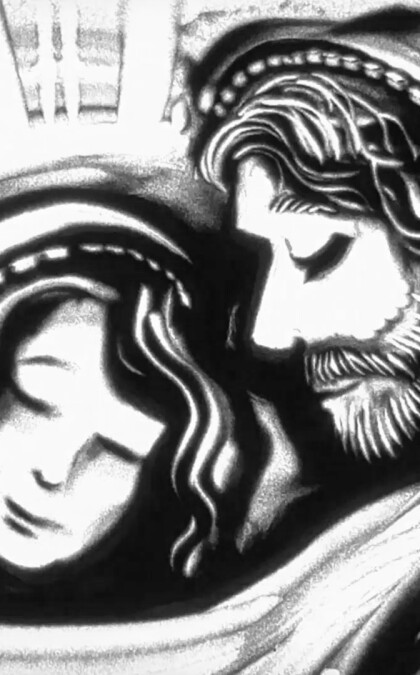Was Jesus' Body Stolen?
At Easter, Christians celebrate the resurrection of Jesus, who died on the cross on Good Friday, and rose from the dead the following Sunday. This event led Christians to gather on the first day of the week (Sunday), calling it the "Lord’s Day"—the day Jesus rose from the grave.
However, from the very moment this extraordinary event took place, an alternative explanation for the empty tomb began circulating. According to this claim, Jesus did not rise from the dead; instead, His body was stolen. When the guards stationed at the tomb fled to Jerusalem in fear, the chief priests allegedly bribed them to spread this rumor. But does this explanation hold up under scrutiny?

Fearful Disciples
If Jesus did not rise from the dead and His body was indeed stolen by His disciples, then something drastic must have happened between His arrest and that Sunday morning. At the time of His arrest, the disciples were terrified and fled in fear. For days, they remained in hiding, locking their doors in fear of the Jewish authorities.
How likely is it, then, that these frightened disciples would suddenly find the courage to approach a heavily-guarded tomb, overcome well-trained and armed soldiers, and steal Jesus' body? The Roman guards knew that allowing the body to be taken would likely cost them their own lives.
A Martyr’s Death
If the disciples had indeed fabricated the story of Jesus’ resurrection, would they have then risked their lives to spread this message? Not only did they proclaim this belief that Jesus rose from the dead, but they also encouraged others to embrace it and transform their lives accordingly. In the end, 11 of the 12 disciples were martyred for preaching the resurrection.
Would they have been willing to endure persecution, suffering, and even death for a lie they invented themselves?
From Fearful Followers to Courageous Heroes
Would a fabricated resurrection inspire the disciples to boldly call people to repentance? Or is it far more plausible that these once-fearful followers became fearless heroes after encountering the risen Jesus? Their fear was replaced with an unshakable conviction that the world needed to hear the message that death had been defeated.
It was precisely because Jesus lives that they found the courage to face hostility and suffering while preaching this message.
Judge for Yourself
On the day of Pentecost, the disciples stood in the bustling city of Jerusalem, proclaiming that their friend was alive. This was the very city where Jesus had been arrested and crucified not long before—yet it became the birthplace of the Christian church. Why would they risk everything for a lie?
Later, when questioned by Jewish leaders after healing a paralyzed man, the disciples answered:
“Let it be known to all of you and to all the people of Israel that by the name of Jesus Christ of Nazareth, whom you crucified, whom God raised from the dead, by Him this man stands here before you healed … Judge for yourselves whether it is right in God’s sight to obey you rather than God. For we cannot help but speak about what we have seen and heard.” (Acts 4:10, 19-20)
Conclusion
The only reasonable explanation for the disciples’ transformation and unwavering courage is their absolute certainty that the empty tomb meant Jesus was alive. While this does not in itself prove the resurrection, it does cast serious doubt on the idea that the disciples stole Jesus’ body. If the tomb was empty on Easter morning, the most plausible explanation remains: Jesus has risen.

The Wonders of the Cross
What happened in the final 18 hours before Jesus' death on the cross? In the email series, "The Wonders of the Cross," you will be taken on an transformative 40-day journey to the seven moments when the blood of Jesus flowed, through which you can receive the wonders of the Cross in your life.



